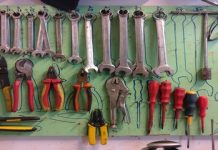Slate:Activity Group Therapy (1950), Columbia University Educational Films. [7] In 1989, it won the Festival's Plate at the Torino International Gay & Lesbian Film Festival. What Jimmy didn't know is that Ralph was sick. Howard Smith, Reporter,The Village Voice:I had been in some gay bars either for a story or gay friends would say, "Oh we're going to go in for a drink there, come on in, are you too uptight to go in?" Dick Leitsch:New York State Liquor Authority had a rule that one known homosexual at a licensed premise made the place disorderly, so nobody would set up a place where we could meet because they were afraid that the cops would come in to close it, and that's how the Mafia got into the gay bar business. Raymond Castro:Society expected you to, you know, grow up, get married, have kids, which is what a lot of people did to satisfy their parents. Martin Boyce:I heard about the trucks, which to me was fascinated me, you know, it had an imagination thing that was like Marseilles, how can it only be a few blocks away? It was not a place that, in my life, me and my friends paid much attention to. I hope it was. That this was normal stuff. Few photographs of the raid and the riots that followed exist. Her most recent film, Bones of Contention, premiered in the 2016 Berlin International Fred Sargeant:We knew that they were serving drinks out of vats and buckets of water and believed that there had been some disease that had been passed. They were supposed to be weak men, limp-wristed. Geoff Kole Calling 'em names, telling 'em how good-looking they were, grabbing their butts. [00:00:58] Well, this I mean, this is a part of my own history in this weird, inchoate sense. A word that would be used in the 1960s for gay men and lesbians. Participants of the 1969 Greenwich Village uprising describe the effect that Stonewall had on their lives. Narrator (Archival):Sure enough, the following day, when Jimmy finished playing ball, well, the man was there waiting. Seymour Pine, Deputy Inspector, Morals Division, NYPD:The moment you stepped out that door there would be hundreds facing you. Narrator (Archival):Note how Albert delicately pats his hair, and adjusts his collar. I learned, very early, that those horrible words were about me, that I was one of those people. 1984 documentary film by Greta Schiller and Robert Rosenberg, "Berlinale 2016: Panorama Celebrates Teddy Award's 30th Anniversary and Announces First Titles in Programme", "Guest Post: What I Learned From Revisiting My 1984 Documentary 'Before Stonewall', "See the 25 New Additions to the National Film Registry, From Purple Rain to Clerks", "Complete National Film Registry Listing", "Before Stonewall - Independent Historical Film", Before Stonewall: The Making of a Gay and Lesbian Community (Newly Restored), https://en.wikipedia.org/w/index.php?title=Before_Stonewall&oldid=1134540821, Documentary films about United States history, Historiography of LGBT in the United States, United States National Film Registry films, Short description is different from Wikidata, Creative Commons Attribution-ShareAlike License 3.0, This page was last edited on 19 January 2023, at 05:30. Greenwich Village's Stonewall Inn has undergone several transformations in the decades since it was the focal point of a three-day riot in 1969. And we had no right to such. Well, it was a nightmare for the lesbian or gay man who was arrested and caught up in this juggernaut, but it was also a nightmare for the lesbians or gay men who lived in the closet. And that, that was a very haunting issue for me. Martin Boyce:It was thrilling. Howard Smith, Reporter,The Village Voice:At a certain point, it felt pretty dangerous to me but I noticed that the cop that seemed in charge, he said you know what, we have to go inside for safety. Tommy Lanigan-Schmidt I guess they're deviates. Before Stonewall 1984 Directed by Greta Schiller, Robert Rosenberg Synopsis New York City's Stonewall Inn is regarded by many as the site of gay and lesbian liberation since it was at this bar that drag queens fought back against police June 27-28, 1969. They can be anywhere. This is one thing that if you don't get caught by us, you'll be caught by yourself. Dick Leitsch:And I remember it being a clear evening with a big black sky and the biggest white moon I ever saw. And when you got a word, the word was homosexuality and you looked it up. And these were meat trucks that in daytime were used by the meat industry for moving dead produce, and they really reeked, but at nighttime, that's where people went to have sex, you know, and there would be hundreds and hundreds of men having sex together in these trucks. And I said to myself, "Oh my God, this will not last.". Frank Kameny, co-founder of the Mattachine Society, and Shirley Willer, president of the Daughters of Bilitis, spoke to Marcus about being gay before the Stonewall riots happened and what motivated people who were involved in the movement. John O'Brien:And deep down I believed because I was gay and couldn't speak out for my rights, was probably one of the reasons that I was so active in the Civil Rights Movement. Other images in this film are They were just holding us almost like in a hostage situation where you don't know what's going to happen next. TV Host (Archival):That's a very lovely dress too that you're wearing Simone. It was an age of experimentation. To commemorate the 20th anniversary of the Stonewall riots in New York City, activists rode their motorcycles during the city's 1989 gay-pride parade. Oh, tell me about your anxiety. And, you know,The Village Voiceat that point started using the word "gay.". Raymond Castro:New York City subways, parks, public bathrooms, you name it. A sickness of the mind. It's the first time I'm fully inside the Stonewall. Jerry Hoose:And I got to the corner of Sixth Avenue and Eighth Street, crossed the street and there I had found Nirvana. In 1924, the first gay rights organization is founded by Henry Gerber in Chicago. Revealing and often humorous, this widely acclaimed film relives the emotionally-charged sparking of today's gay rights movement . Marjorie Duffield Dick Leitsch:Well, gay bars were the social centers of gay life. This is every year in New York City. Before Stonewall 1984 Unrated 1 h 27 m IMDb RATING 7.5 /10 1.1K YOUR RATING Rate Play trailer 2:21 1 Video 7 Photos Documentary History The history of the Gay and Lesbian community before the Stonewall riots began the major gay rights movement. The only faces you will see are those of the arresting officers. The shop had been threatened, we would get hang-up calls, calls where people would curse at us on the phone, we'd had vandalism, windows broken, streams of profanity. Lucian Truscott, IV, Reporter,The Village Voice:This was the Rosa Parks moment, the time that gay people stood up and said no. Heather Gude, Archival Research Abstract. Slate:The Homosexual(1967), CBS Reports. The events that took place in June 1969 have been described as the birth of the gay-rights movement, but that's only partially true. But I gave it up about, oh I forget, some years ago, over four years ago. Martin Boyce But, that's when we knew, we were ourselves for the first time. Saying I don't want to be this way, this is not the life I want. Dr. Socarides (Archival):Homosexuality is in fact a mental illness which has reached epidemiological proportions. But everybody knew it wasn't normal stuff and everyone was on edge and that was the worst part of it because you knew they were on edge and you knew that the first shot that was fired meant all the shots would be fired. Tires were slashed on police cars and it just went on all night long. In the sexual area, in psychology, psychiatry. Raymond Castro:So finally when they started taking me out, arm in arm up to the paddy wagon, I jumped up and I put one foot on one side, one foot on the other and I sprung back, knocking the two arresting officers, knocking them to the ground. And there was tear gas on Saturday night, right in front of the Stonewall. Martin Boyce:There were these two black, like, banjee guys, and they were saying, "What's goin' on man?" ABCNEWS VideoSource They didn't know what they were walking into. Cause we could feel a sense of love for each other that we couldn't show out on the street, because you couldn't show any affection out on the street. Well, little did he know that what was gonna to happen later on was to make history. John O'Brien:Cops got hurt. It was the only time I was in a gladiatorial sport that I stood up in. But I had only stuck my head in once at the Stonewall. This documentary uses extensive archival film, movie clips and personal recollections to construct an audiovisual history of the gay community before the Stonewall riots. Frank Simon's documentary follows the drag contestants of 1967's Miss All-American Camp Beauty Pageant, capturing plenty of on- and offstage drama along the way. Before Stonewall pries open the closet door, setting free dramatic stories from the early 1900's onwards of public and private existence as experienced by LGBT Americans. Narrator (Archival):This involves showing the gay man pictures of nude males and shocking him with a strong electric current. Vanessa Ezersky We were winning. John Scagliotti This was the first time I could actually sense, not only see them fearful, I could sense them fearful. You know. And as awful as people might think that sounds, it's the way history has always worked. We heard one, then more and more. Alexis Charizopolis The last time I saw him, he was a walking vegetable. As president of the Mattachine Society in New York, I tried to negotiate with the police and the mayor. In the trucks or around the trucks. Chris Mara, Production Assistants Nobody. Few photographs of the raid and the riots that followed exist. This documentary uses extensive archival film, movie clips . They put some people on the street right in front ofThe Village Voiceprotesting the use of the word fag in my story. People cheer while standing in front of The Stonewall Inn as the annual Gay Pride parade passes, Sunday, June 26, 2011 in New York. Marc Aubin The newly restored 1984 documentary "Before Stonewall: The Making of a Gay and Lesbian Community," re-released to coincide with the 50th anniversary of the seminal Stonewall riots, remains a . Every arrest and prosecution is a step in the education of the public to the solution of the problem. William Eskridge, Professor of Law:Gay people who were sentenced to medical institutions because they were found to be sexual psychopaths, were subjected sometimes to sterilization, occasionally to castration, sometimes to medical procedures, such as lobotomies, which were felt by some doctors to cure homosexuality and other sexual diseases. You were alone. At least if you had press, maybe your head wouldn't get busted. It's very American to say, "You promised equality, you promised freedom." Martin Boyce:It was another great step forward in the story of human rights, that's what it was. And Vito and I walked the rest of the whole thing with tears running down our face. John O'Brien:Whenever you see the cops, you would run away from them. I had never seen anything like that. In an effort to avoid being anachronistic . Seymour Wishman I really thought that, you know, we did it. The events. David Carter, Author ofStonewall:There was also vigilantism, people were using walkie-talkies to coordinate attacks on gay men. Because he was homosexual. Martha Shelley:In those days, what they would do, these psychiatrists, is they would try to talk you into being heterosexual. On June 27, 1969, police raided The Stonewall Inn, a gay bar in New York. But we had to follow up, we couldn't just let that be a blip that disappeared. For the first time, we weren't letting ourselves be carted off to jails, gay people were actually fighting back just the way people in the peace movement fought back. Martin Boyce:All of a sudden, Miss New Orleans and all people around us started marching step by step and the police started moving back. Jerry Hoose:I was afraid it was over. National Archives and Records Administration Danny Garvin:And the cops just charged them. Get the latest on new films and digital content, learn about events in your area, and get your weekly fix of American history. It eats you up inside. 400 Plankinton Ave. Compton's Cafeteria Raid, San Francisco, California, 1966 Coopers Do-Nut Raid, Los Angeles, California, 1959 Pepper Hill Club Raid, Baltimore, Maryland in 1955.
Utilita Arena Birmingham Section Bk,
Portia And Nerissa Relationship,
Dr Kelly Victory Contact,
The Mutability Of Literature Summary,
Articles B




